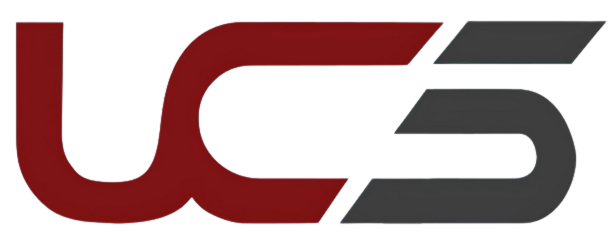Welcome to the future of AI governance as Australia ramps up its investment in artificial intelligence and digital transformation, ISO/IEC 42001:2023 emerges as the essential global standard that organizations can’t afford to ignore. Whether you’re a tech startup in Sydney or a public sector agency in Canberra, this standard sets the benchmark for responsible AI development and management.
So, what’s the big deal? Let’s break it all down from the basics to real-world applications and why your organization needs to pay attention.
What Is ISO/IEC 42001:2023?
Background of the Standard
Launched in 2023, ISO/IEC 42001 is the first international AI management system standard designed to guide organizations in the responsible use of AI. Developed by ISO (International Organization for Standardization) and IEC (International Electrotechnical Commission), this standard fills the much-needed gap in AI governance frameworks globally.
Key Objectives of ISO/IEC 42001
• Establish trust in AI systems
• Reduce ethical and legal risks
• Promote transparency and explainability
• Define accountability mechanisms
Who Developed It and Why?
It was crafted by an international committee of experts from multiple sectors, including technology, law, academia, and policy. The primary aim? To prevent misuse of AI while encouraging innovation.
Scope of ISO/IEC 42001
Focus on Artificial Intelligence Systems
Unlike older IT standards, ISO/IEC 42001 zeroes in on AI-specific risks, such as bias, data integrity, and decision-making algorithms. It applies whether you’re building a machine learning app or deploying AI for business analytics.
Applicability Across Industries
Whether you’re in healthcare, finance, education, transport, or retail, if you’re touching AI, this standard has something for you.
Importance of AI Management Standards
Growing Role of AI in Australian Business
AI is no longer a buzzword it’s already in customer service bots, banking apps, healthcare diagnostics, and even public transport. CSIRO estimates that artificial intelligence could add $315 billion to Australia’s economy by 2030.
Addressing Risks, Bias, and Ethics in AI
Unchecked AI can result in unfair outcomes, security vulnerabilities, and legal consequences. ISO/IEC 42001 establishes ethical guidelines to help ensure AI systems remain safe, responsible, and under control.
Benefits of ISO/IEC 42001 Implementation
Governance and Accountability
You gain a framework to assign roles and responsibilities, ensuring everyone knows who’s accountable for AI decisions.
Improved Trust and Transparency
Build stakeholder trust by being able to explain how your AI makes decisions. No more “black box” fears.
Competitive Advantage for Australian Businesses
In an increasingly AI-regulated world, early adopters can win tenders, partnerships, and customer loyalty by showing compliance.
Who Should Adopt ISO/IEC 42001 in Australia?
Tech Companies and Startups
For innovation hubs like Melbourne and Sydney, adopting this standard signals maturity and responsibility.
Government and Public Sector
Australian agencies already rely on AI for data analytics, forecasting, and operations. This standard helps them manage risks while maintaining public trust.
Healthcare, Education, and Financial Institutions
With high-stakes data and decision-making, these sectors must adopt a robust AI management system to avoid reputational damage and legal trouble.
Challenges in Adopting the Standard
Complexity of AI Systems
AI isn’t plug-and-play. Managing neural networks and deep learning models needs specialized oversight.
Lack of Skilled Professionals
Australia faces a shortage of AI governance experts. Upskilling your team is essential.
Resource and Cost Constraints
Small businesses may struggle with resources — but compliance could pay off long-term.
ISO/IEC 42001 vs Other Standards
Comparison with ISO 27001 (Information Security)
While ISO 27001 focuses on data protection, ISO 42001 dives into the behaviour, decision-making, and impacts of AI.
Alignment with ISO/IEC 38507 (Governance of IT)
Both standards aim to improve governance, but ISO/IEC 42001 offers granular control over AI ethics and risks.
Australia’s AI Strategy and Regulatory Environment
Australian Government’s AI Ethics Framework
The Department of Industry has already laid the groundwork by introducing ethical AI principles.
ISO/IEC 42001 provides the actionable toolkit to implement them.
Role of ISO/IEC 42001 in National AI Policy
Expect tighter AI regulations. Organizations that adopt ISO/IEC 42001 will be ahead of the compliance curve.
Real-World Applications in Australia
Case Study: AI in Healthcare
An Australian hospital used AI to triage patients. With ISO/IEC 42001, they ensured decisions were transparent, ethical, and inclusive.
Case Study: Smart Cities and Infrastructure
AI is being used to manage traffic flow in Brisbane. Standards like ISO 42001 ensure privacy and fairness are not compromised.
The Future of ISO/IEC 42001
Global Adoption Trends
Countries like the UK, Germany, and Japan are already exploring national policies aligned with this standard. Australia must stay competitive.
Evolving Standards with Emerging Technologies
As AI increasingly integrates with IoT, quantum computing, and 5G, ISO/IEC 42001 is expected to evolve as well—future updates are likely.
Expert Insights and Industry Feedback
What Australian Leaders Are Saying
Tech leaders hail ISO/IEC 42001 as a “game-changer” in advancing responsible and trustworthy AI.
Feedback from Early Adopters
Early adopters report reduced regulatory risk and better alignment with investor expectations.
ISO/IEC 42001:2023 isn’t just another tech standard — it’s a vision for a safer, smarter, and more ethical AI-powered future. As AI’s footprint expands across Australia, businesses and public institutions must act now to stay ahead of the curve. Adopting this standard is more than compliance; it’s your ticket to trust, innovation, and long-term success.
Learn more about the official standard on ISO.org, or start your certification journey with our experts.

